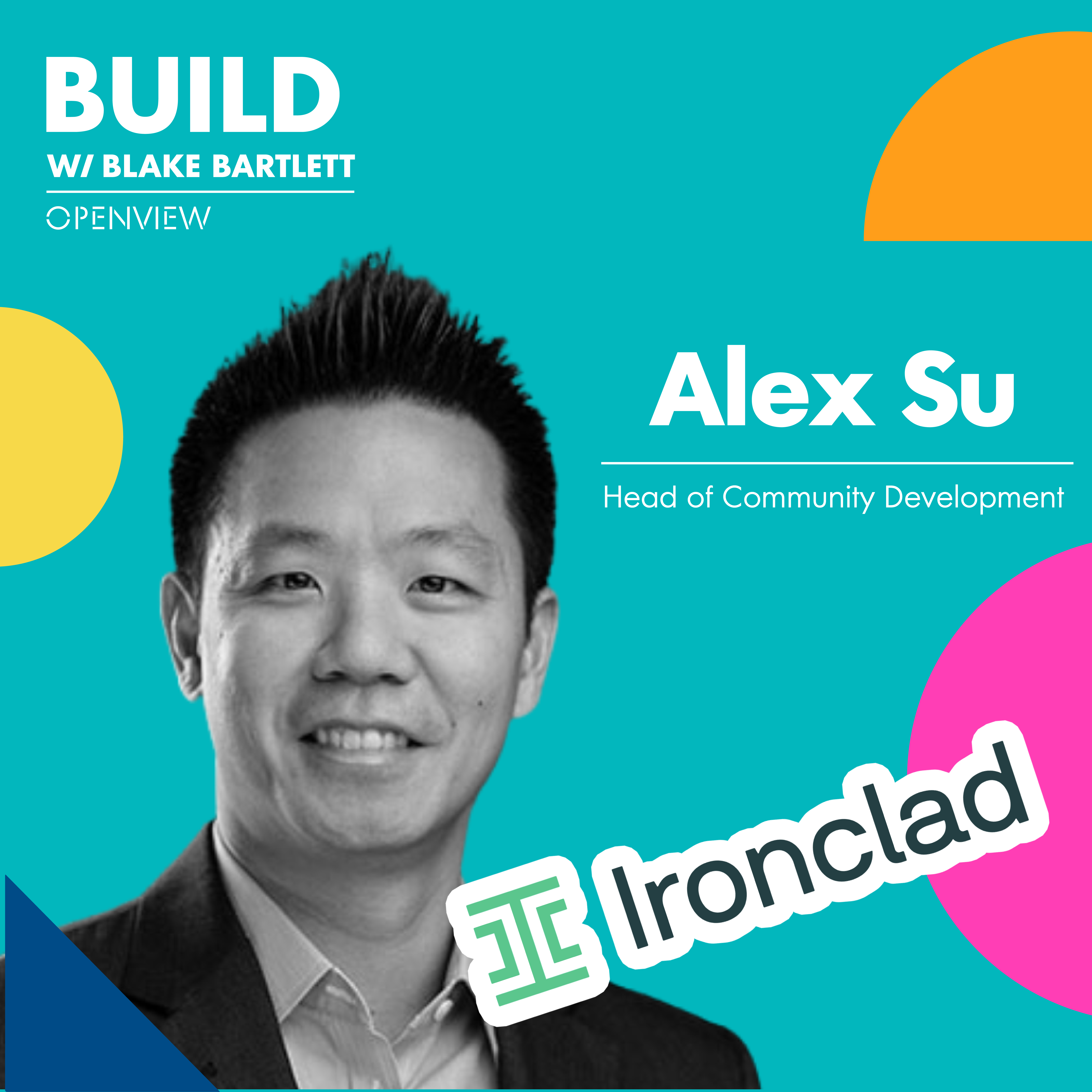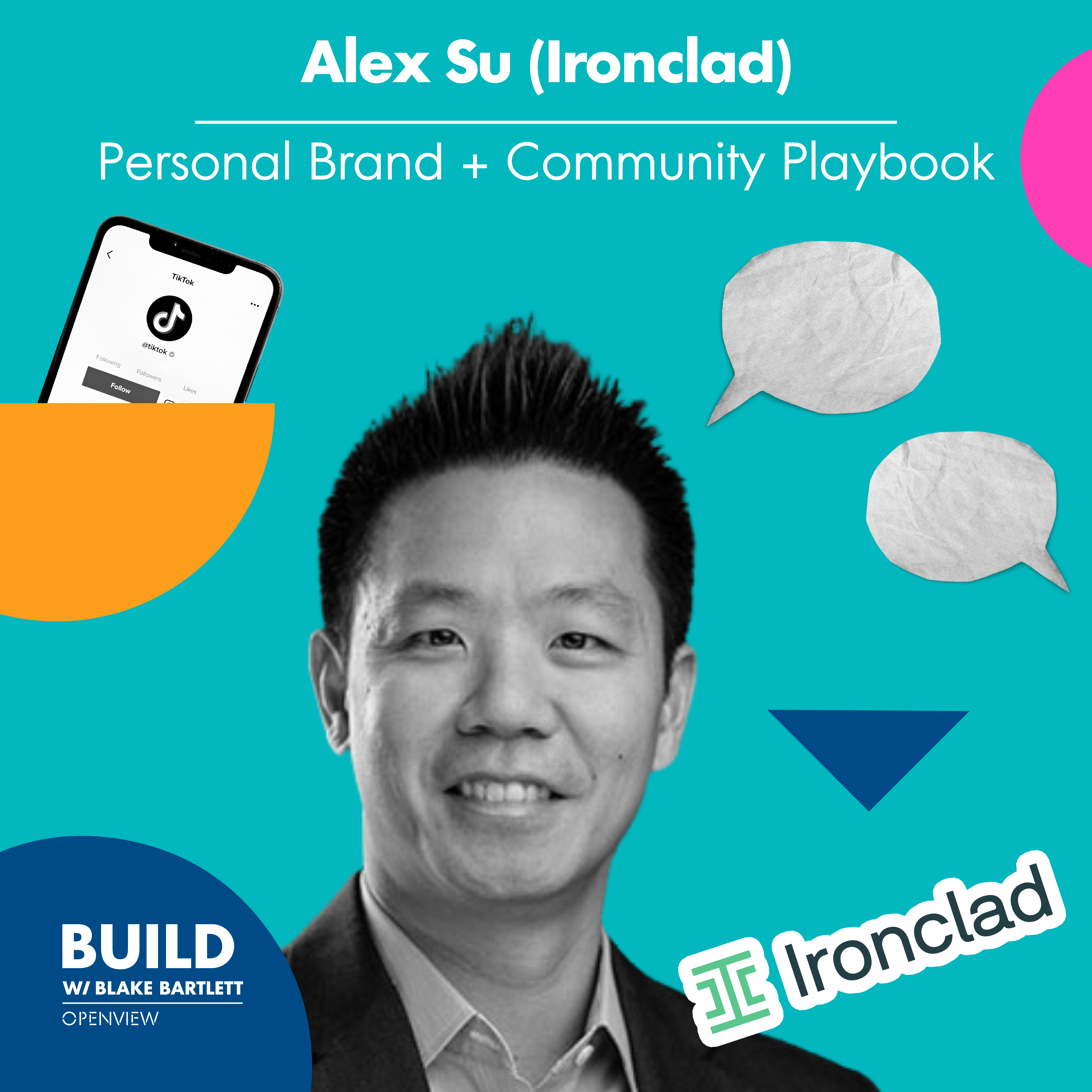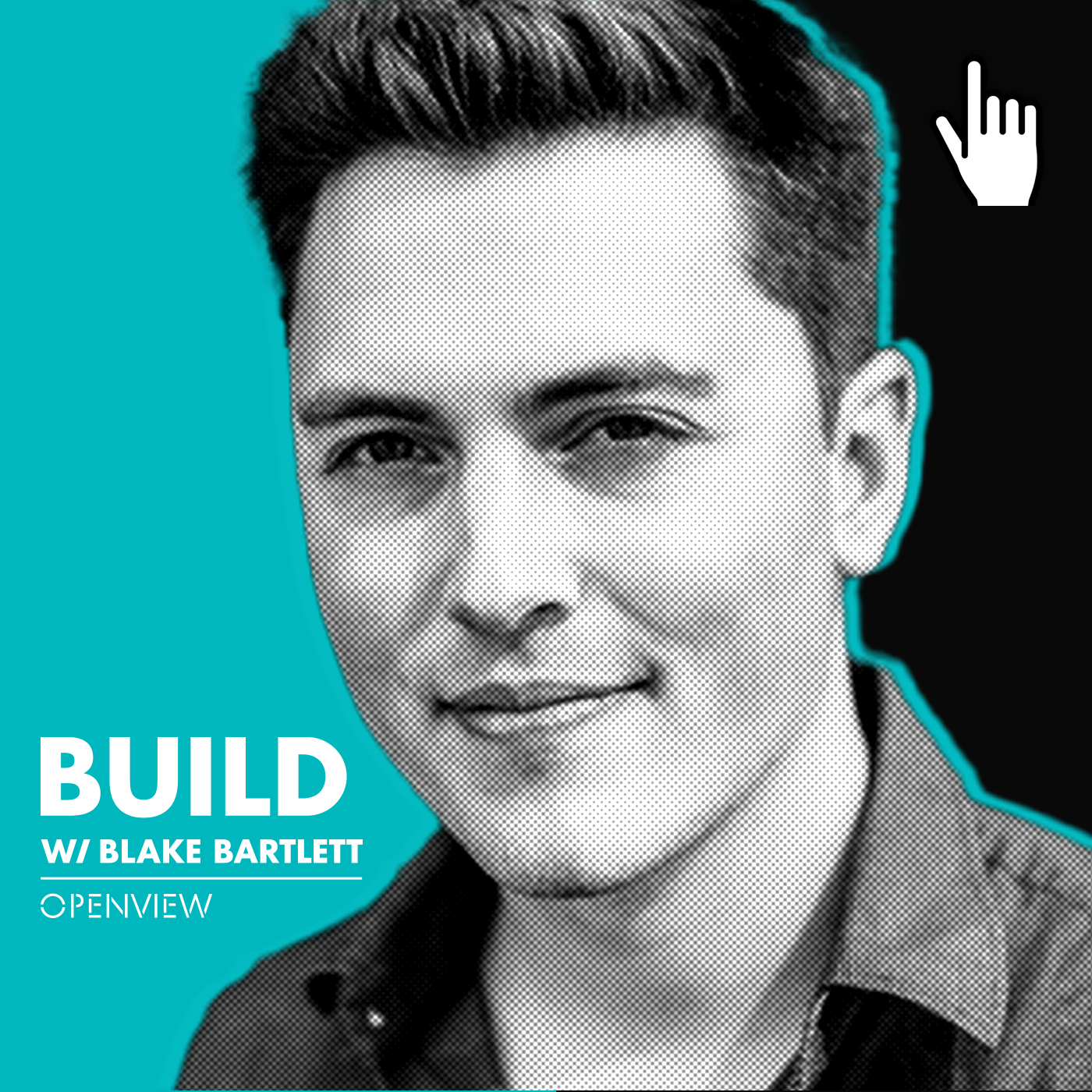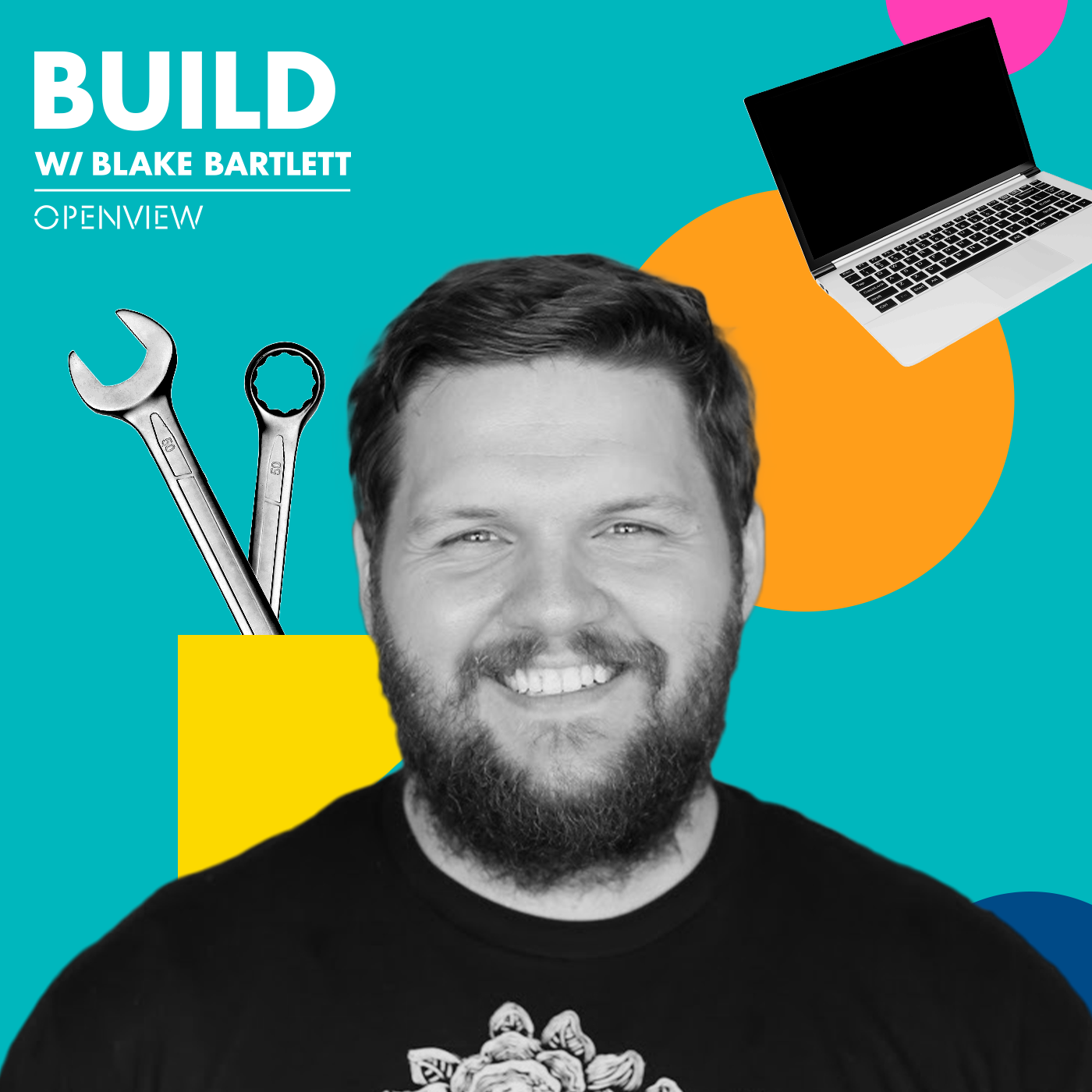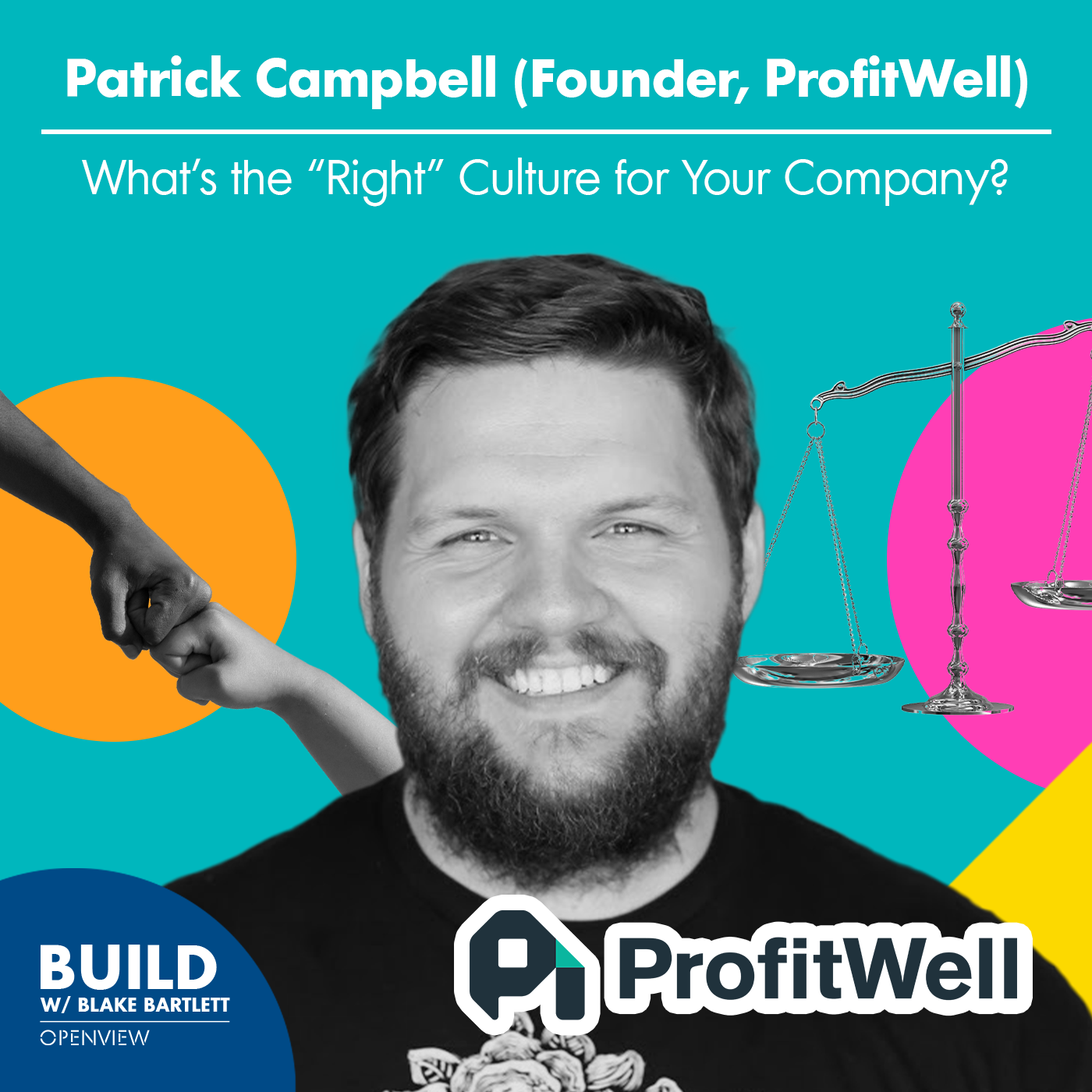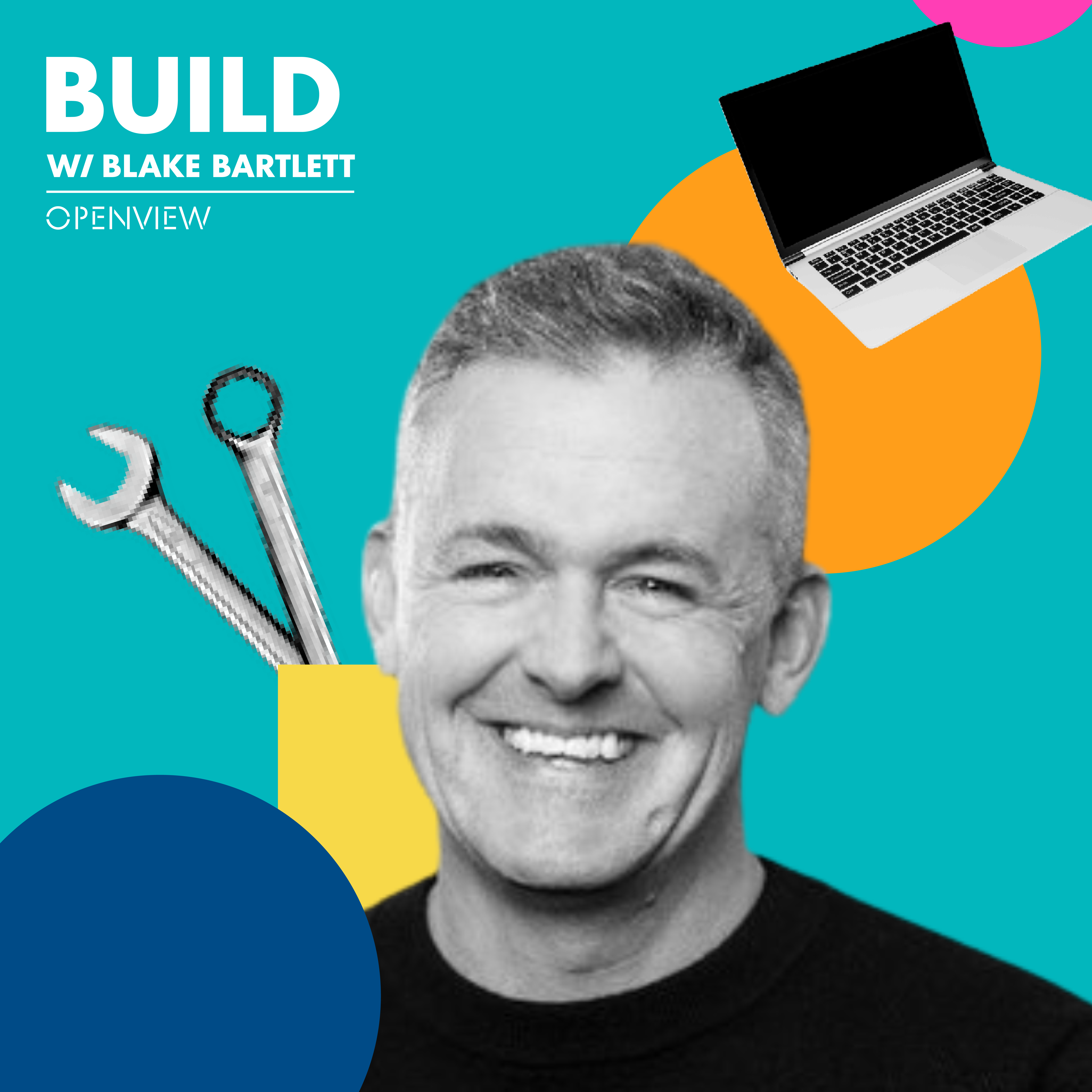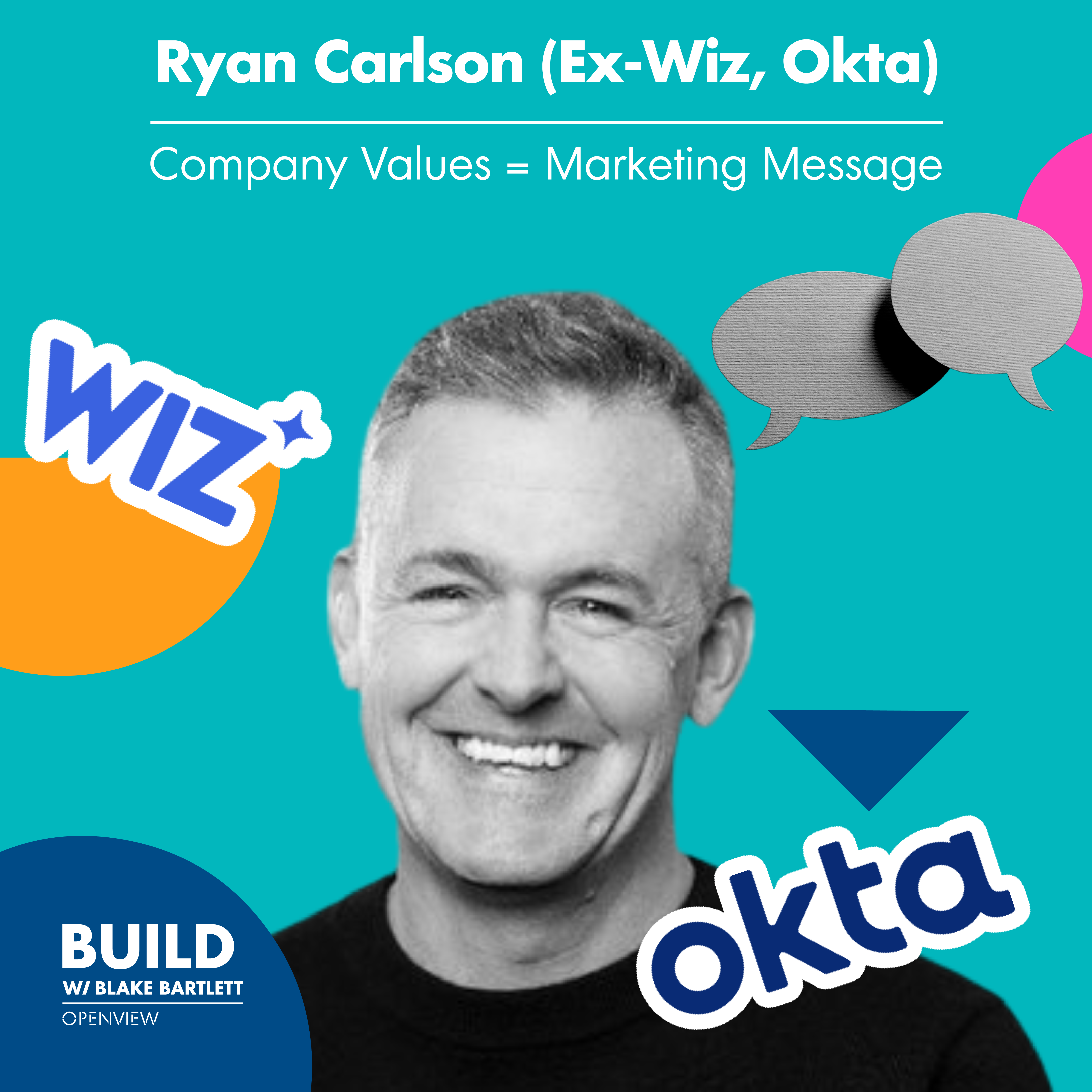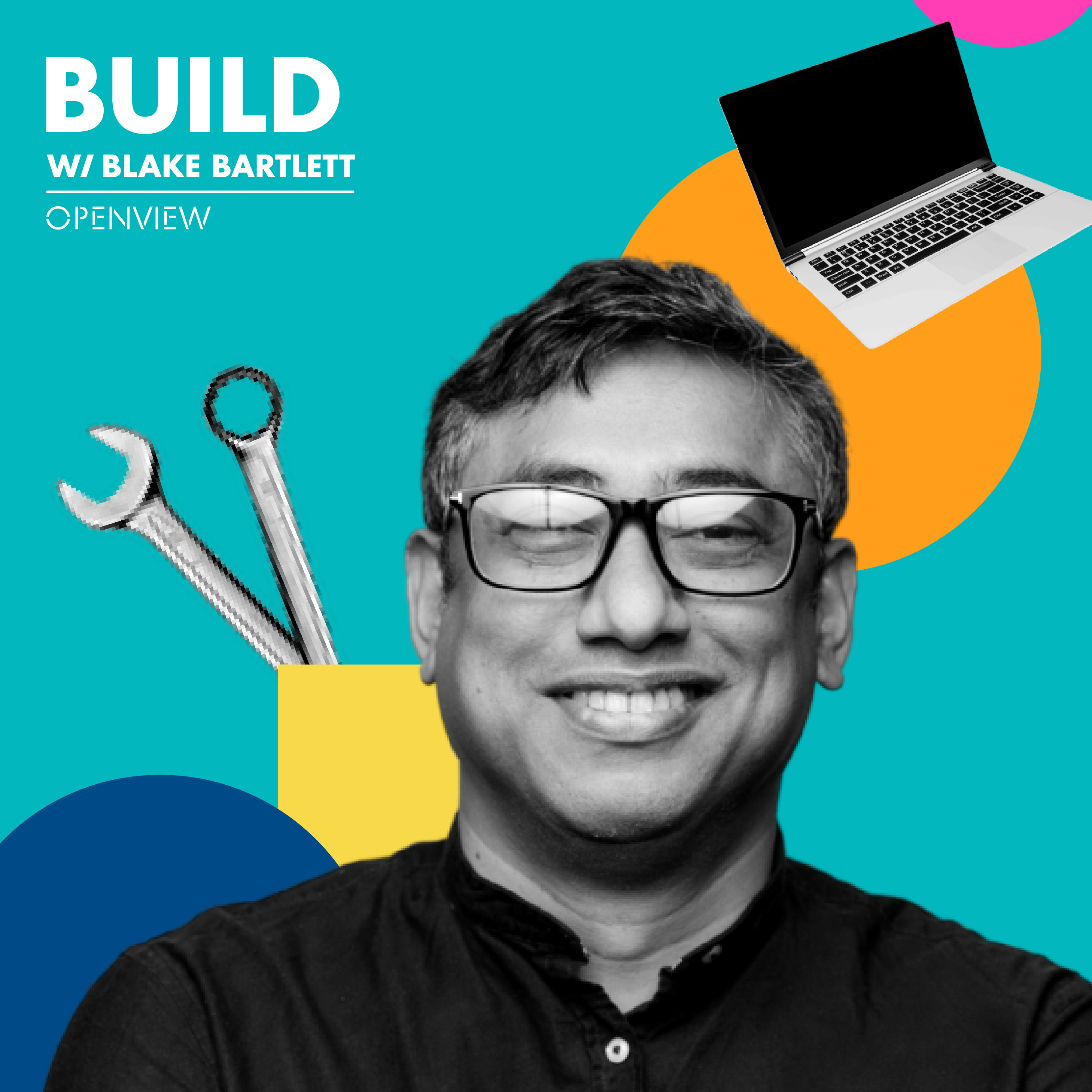Alex Su (Ironclad): Personal Brand + Community Playbook
- 0.5
- 1
- 1.25
- 1.5
- 1.75
- 2
Blake Bartlett: Coming up on today's episode of BUILD.
Alex Su: And so we're almost like nurturing them using goodwill as opposed to pushing content or pushing marketing materials on them. They're actually raising their hands and reaching out. And so whether it's going through the webinars, the community dinners, meeting us at conferences, they kind of get introduced to the Ironclad brand, and in doing so, eventually will raise their hand and say, " Hey, we want to buy."
Blake Bartlett: Alex Su is head of community at Ironclad, a legal tech unicorn offering contract management software, but most people know him as @legaltechbro, which is his handle on TikTok. He's gathered hundreds of thousands of followers across his socials by making 15- second sketches that poke fun at the legal profession, and lawyers far and wide know him and love him because of that content, and it's also generating a ton of real business, not to mention brand equity for Ironclad. It's one of those strategies that looks obvious in retrospect, but Alex's journey getting here wasn't what you might expect. Personally, I love Alex's content, but getting to speak with him today was a dream come true for a curious person like myself. I had questions galore. How exactly did Alex find his voice as a creator and go viral? Is there real B2B business value in TikTok? And how exactly can others follow in his footsteps? We unpack all of these questions and much, much more on today's episode of BUILD. So let's dive right in with Alex Su. So we're going to talk about your personal brand today and your personal brand strategy, how that connects to community and to go- to market more broadly. So I guess as a starting point, you are a creator under the handle @ legaltechbro. So for anyone who hasn't seen your content, how would you describe your channel?
Alex Su: So I have a channel on TikTok where I make fun of the legal industry and the legal profession. I make short form video skits parodying some element of the practice of law, and it's because I used to practice law before I got into tech. Today, I'm the head of community development at Ironclad, but I practiced law for six years. And so a lot of the content I put out is tied to my own experiences and the experiences of other lawyers.
Blake Bartlett: Well, and it's so good, and I laugh every single time I see one of your videos. And I'm not a lawyer, but I know a lot of lawyers. I've worked with lawyers, and so even for me, I see the humor in it and I get the inside jokes just from being around it. So it's really, really good stuff and it always gets a laugh out of me.
Alex Su: Well, thank you. I think it has to do with there's some universal experiences, especially the jokes I make about working at a law firm, the hierarchy and the underappreciated associates. That's a big theme in what I post about. I also talk a lot about the tension between a legal department and the business function or the sales department within a company, and I think everyone involved finds that relatable. So yeah, it's a lot of fun and I can't believe that so many people, people like you, watch my stuff.
Blake Bartlett: So how did you go from a lawyer practicing law to then you were in a sales capacity and then now you're a creator with a huge following and a ton of influence? So what's the origin story, I guess, of Legal Tech Bro?
Alex Su: So I've been a content creator my entire life, even all the way back to college. But I went to law school, I practiced law, and I found that it wasn't a good fit for me. So six years after law school, I made a pivot to the legal tech space. I thought this is where I could really contribute. I took on an entry level sales role, an SDR role, and I think that's when you and I both met back, I think, six years ago. But I started making content right around then on LinkedIn because I was trying to source leads. I was responsible for outbound, and we were cold calling and emailing lawyers to pitch them our software, but it wasn't enough. And I thought I needed to do something different to generate my own marketing so that I have leads come to me as opposed to me chasing them. Lawyers are a notoriously skeptical audience. It's hard to pitch them on a cold call. So I thought LinkedIn would be a great channel to put out some content. In the beginning, it was kind of tough. I would put out thought leadership pieces and nobody cared. So I pivoted over time to talking about my career journey leaving the law. And over the next, I want to say three or four years, this is 2016 to 2020, I built up a small following, and then when the pandemic hit, everything changed. I leaned into the content because I thought it was a promising channel to drive my own leads. I was getting inbound demos at a trickle. But when the pandemic hit, I really leaned into it. I tried all sorts of different mediums. I tried different content styles, all tied around this creating compelling content for a legal audience. And that took me to TikTok, which I never imagined that I would be doing. I remember my wife told me about TikTok. She's like, " There's this app with teenagers dancing and lip syncing." And I was like, " That seems silly. I can't use that in any way." So I went back to LinkedIn and posted. But a few different people in the community, in the legal community told me, " Hey, you should try out this app." And so I downloaded the app and I made a couple of videos. I had no followers, I had no presence, I didn't know what I was doing. My fourth video on TikTok went massively viral and led to all sorts of good things in terms of inbounds, leads and things like that. So I thought, " Hey, maybe I could lean into this. Maybe this will be my special way of generating leads for myself, for hitting my quota up, for hitting my numbers." So that was right in the beginning of the pandemic in 2020, and I've been doing it since.
Blake Bartlett: What was that fourth video that the first one that went viral and went big?
Alex Su: It's a video that's set to Blinding Lights by The Weeknd, and the theme was there was a first year associate who disrespects a paralegal and then suddenly the partner, the senior partners, the client, the judge, it all like, " Ooh," as if it was such a huge mistake. So I think that was relatable to a lot of people. The video hit 2 million views, and it was kind of a crazy experience because I remember I was on a sales call and I got my Slack was blowing up from one of my friends at the company, and they were like, " Hey, you're all over to the FYP on TikTok. You're everywhere." I'm like, " What are you talking about? I have no followers on TikTok." And they were like, " I see it."
Blake Bartlett: Now you do.
Alex Su: "Now you do. Now you do." And I remember getting a text from my sister. I got text from high school friends. It just, overnight, my content traveled worldwide.
Blake Bartlett: I love how counterintuitive the strategy is because as business people and selling business software, I would've started in the same exact place that you started, which is like, let's go to the business social network, LinkedIn, and let's like, what do business people want to hear? Business thoughts and thought leadership and formal stuff about why I'm so smart and why you should want my expertise. That's what I would've done. I think that's what the average person thinks, well, I'm in a business context, this is what I need to do. But what ended up actually resonating was stuff that was much more, I don't know, personal. It was about the life of somebody in the legal profession. And then it was channels that weren't business channels. It was TikTok. So I guess what are your takeaways from that? How did that change your perspective as to what works and what resonates with content?
Alex Su: I think you've got to go where people are and speak to the things that they care about. Oftentimes, those of us in tech and especially B2B SaaS, we kind of get laser- focused on the tech and talking about the technology. To our target audience, to the customers, we are just a small piece of their day- to- day of everything they're dealing with. So when I first started posting, I posted about trends in legal tech. I thought if I talked about technology, buyers might be interested in reading it, and this is kind of a well worn playbook for a lot of thought leaders. It didn't work for me. People just didn't care about it. So when I pivoted to talking about my own career journey on LinkedIn, when I started writing about being an unhappy lawyer and finding something better, that spoke to people more. And lawyers are all on LinkedIn, so they're there to look for career opportunities. It helped me build a following much more easily than if I had created my own website and set up a white paper. So I think speaking to people on topics they care about, going to where they are is the first step. And unexpectedly, even though I wasn't talking about tech, people reached out to me for product demos and for sales conversations because if you go to where they are, they're going to reach out and they're going to look at your profile, they're going to see what you're about. Some small percentage of them are going to be in the market for your tech. That's when I think the magic happens. And then when I expanded to TikTok, when I expanded to short form video making funny skits, it kind of took things to a different level where now people were sharing my videos, and they were maybe downloading them from TikTok and sharing them with each other on group texts. And I also started shifting my content strategy from talking about my career journey to talking about the tension between sales and legal, for example, or the difficulties of working at a law firm because those are universal experiences for our target audience. So I didn't have to tell them to get a contract management system. I didn't have to tell them to get technology. They would be relate to the content I made and then look me up and then see that I was at a contract technology company.
Blake Bartlett: Yeah. To me, setting up this really interesting juxtaposition, which is I think it's possible to look at content, and a lot of people do, and just default to content that actually is about me, the person writing the content. Thought leadership, look at how smart I am, look at all the ideas, look at all the things that I'm pointing to in legal tech and the trends there, whatever. And what you're describing is making content that's more about you, the audience. I know what it's like to be in your shoes. I know what's frustrating about your journey, and I'm going to make content about that so that I show that I understand you as a person and something that you are going to resonate with. It's not about me making myself look like the biggest thought leader in the world. It's about me connecting with you as a person and understanding you.
Alex Su: That's exactly right. Incidentally, it helped me build my personal brand, which I've never been an expert in, but when you talk about other people, when you create content relevant to other people, it lifts up your personal brand in a way that doesn't happen when you talk about yourself. We all are on LinkedIn. We see the cringey posts from the thought leaders who want to talk about only themselves. It comes across, right? But when you create content that's designed to create value for someone else, whether it's to educate them, to entertain them, something helpful to them, it lifts you up and you create a lot of goodwill. And that's kind of what happened to me kind of by accident. I always felt uncomfortable being on video, and I did it because I thought that I could make people laugh, which I really like doing. I wasn't going to go on video to teach people things about legal tech or my expertise. It was just me trying to make people laugh. And in doing so, I unwittingly and accidentally created my own personal brand.
Blake Bartlett: Yeah, yeah. It's making that content that's about the other person. It's much more personal. But then you also, kind of when you evolved from talking about your career journey to then talking about the tension that exists between legal and sales and inside sort of an in- house legal department, that was adding an additional element. It still had that personal element of I understand what it's like to be in this position and the friction that comes from it. You can kind of poke fun at it and bring humor into it. But it's also layering in something else, which is, in a sense, you are starting to talk about what your company does, but it's not through focusing on the solution, it's through focusing on the problem. It's like, hey, you've all been in this position before where this really annoying thing that happens and it's funny in retrospect, and that describes the problem. You don't even mention that you have a solution to it. But they resonate so much with, " This guy gets me. He knows what I go through. He's been there. He's been in my shoes. Let me look and find out a little bit more. Oh, he works at Ironclad. Let me... What is ironclad? Maybe I need that. He understands the problem so well. Let me get the solution that he stands behind as well."
Alex Su: That's exactly right. The way you describe it, that's exactly right. The funny thing is that I think a lot of people think when they see my videos, they're like, " Oh, this guy's worked at a legal department before. That's why he can make that content," when I make the jokes about the tension between legal and sales. I'm a lawyer. I've never worked in a legal department. My jokes come from actually being on the perspective of the salesperson. I have been a quota carrying sales rep for five years. People don't see that because the persona I project in my skits really speaks to the legal department's pain points. So that's kind of why I also frequently talk about the tension between legal and sales because a lot of these problems are solved by contracts management systems. I never have to talk about it. And I learned that pretty early on. It was instinctive to me because in sales, as you know, in B2B sales especially, you don't go into a sales call pitching your features. You talk about the problems. You do what we call discovery. You try to understand the challenges of the other person. Only then have you earned the credibility to talk about your solution. I just do it on social. And so I think that's why my content is interesting and compelling. I think a lot of people in B2B try to talk about the solution probably a little bit too much. If you focus on the problems, I think you're going to see a very different reaction.
Blake Bartlett: So let's get into a little bit of what this looks like kind of in the day to day. So how does Legal Tech Bro fit into your day- to- day role on the community team at Ironclad? I guess, are you making videos all day every day, or is there more to the strategy than making funny skits?
Alex Su: Well, I think the core engine to what I do at Ironclad is the social media content. So I make TikToks, but I also have a pretty active Twitter account where I make memes and repost memes. I'm active on Instagram. I've got my own Substack. I do a lot of content. Right? And I think what all of that does is it creates goodwill and gets people's attention. The way I work with Ironclad is that... What I just described with the content creation is one part of it. My role at Ironclad is to engage with the community and doing that through Ironclad events. So a big part of what I do is I host webinars and events. We have community dinners where we bring people together and I get to meet them and hear more about this target persona. I get to build connections, and when the time is right, they'll raise their hands and buy Ironclad. I also jump on sales calls. Because my content is so familiar to our target audience, sometimes they... Like I got this email yesterday from someone saying, " Hey, we're considering Ironclad. Can you jump on a call? Because we'd love to meet you. We see your TikToks, and we just want to hear from you." So jumping on sales calls and then kind of internally talking a bit more about helping out with sales and on product strategy, competitive intel because I used to work at another contracts company. I do a lot of those kinds of things, but I think the core function that I do is engaging with the community, which means not just creating content on social, but going out into conferences, community dinners and webinars to actually meet the people, to introduce them to Ironclad.
Blake Bartlett: In addition to just people being aware of who you are and then that awareness creating sort of some level of desirability, how more specifically does making a TikTok then turn into community dinners or what you do with community dinners or sales calls or other sort of events? What's the connectivity there, and what's the playbook I guess you could say?
Alex Su: I think a lot of this is still trying to be figured out. We know that it works, but drawing up that it's not a linear path. The buyer's journey is pretty complicated as you know. It used to be you just talked to a salesperson, learned about the market and then made a choice. Today, buyers are just doing a lot of research. They're consuming content everywhere. They're meeting people, talking to their peers. And I think Ironclad to its credit recognized this very early on. In the early days of the company, our founders just hosted these community dinners where they did not talk at all about Ironclad and magically these leads and sales would happen out of it. So I think they always knew that there was something special about community, and that's why we've kind of doubled down and tripled down on it. Essentially, the content creates this goodwill and awareness. It's not just me, by the way, Blake. It's also our chief community officer, Mary O'Carroll, who's a legend in the legal operations world. She was the president of CLOC, which is a big organization for legal ops in our space. The relationship she's had, the goodwill she has in the community, the goodwill I've generated in the community, all of that is kind of bundled together and people will reach out to Ironclad because they know of us. They know my TikToks. They know her through her work. And then people will be more curious to say, why would these people join Ironclad? What are they all about? Now, a big portion of those people maybe are not qualified buyers, but a large portion of them are, and they've already been positively predisposed to the company because there's just good vibes all around. And what they do is they actually join our webinars. They learn about the product. We may host a dinner and they say, " Hey, I want to go check it out." And so we're almost like nurturing them using goodwill as opposed to pushing content or pushing marketing materials on them. They're actually raising their hands and reaching out. And so whether it's going through the webinars, the community dinners, meeting us at conferences, they kind of get introduced to the Ironclad brand, and in doing so, eventually will raise their hand and say, " Hey, we want to buy."
Blake Bartlett: Yeah. Well, it's so clear to me the way that connecting with people in a genuine human way on social benefits you in all these community events because again, back to where we started, if you're like a stodgy corporate brand just talking about corporate enterprisey stuff and then you're like, " Hey, do you want to come to a dinner?" It's like, " Oh man, more work. I want to watch Netflix tonight. That doesn't sound like fun at all." But if it's like, " Hey, there's this person that you've been following, there's these creators you've been following, you understand them, they understand you. Do you want to go to dinner with them?" It's like, " Oh, that sounds like fun. I want to do that. Yes. I got an invite to this exclusive. Absolutely, yes." So that's one element of it. But also something that I've seen is having a podcast. Who's going to be the guest on the podcast? Having an event, who's going to speak on stage at the event? And if you're trying to use a stodgy corporate brand to attract really great speakers, that's going to be difficult. But if you've built a personal connection with other folks that are influential and they're like, " Yeah, I want to be on stage with that guy," or" Yeah, I would love to be a part of an event that I can be associated with all of that really good stuff that's going on." It sort of opens the door, and it greases the skids for community to actually happen versus trying to force fit it to happen in a way that nobody actually wants.
Alex Su: That's right. That's absolutely right. And what you described is also something that we've been very thoughtful about, how we're trying to leverage myself and Mary's personal connections to help Ironclad's brand. And we also have a community, an internal customer community where when they buy ironclad, they get access to their peers to talk about the product, to talk about best practices in the industry. So it starts off being about us individually, but once they get introduced to the Ironclad brand, there's a lot more programming, a lot more content, a lot more community that you don't really see about on social media. So I think that Ironclad has been very thoughtful about how we incorporate community into our go- to market.
Blake Bartlett: Just a quick break in today's conversation to make sure that you are getting all the latest in PLG content from OpenView. First things first, if you haven't subscribe to BUILD in your favorite podcast app, make sure you do that now. We drop four episodes per month and subscribing is the best way to stay in the loop. And while you're at it, drop us a rating and review for the show so that others can find it as well. And secondly, did you know that I'm a YouTuber? I put out weekly videos on the latest and greatest in PLG with my show called the PLG123. Every video is two minutes or less and features VC perspectives from yours truly on the latest in VC, SaaS, and of course product- led growth. So find me on YouTube by searching Blake Bartlett and make sure to subscribe to my channel so that you don't miss a single video. Okay. Now, let's dive back into today's conversation. So getting into the business side of this, I do got to ask the skeptics question, and I'm sure there's plenty of leaders out there wondering exactly this, which is what's the business value of all of this? How do you know that it's worth the effort and the budget that you're allocating to something like TikTok? Again, it doesn't sound very businessy, and if somebody's like, " What's the business case? What's the ROI?" How do you think about that and how do you answer that skeptics question?
Alex Su: I think that's a great question and something that a lot of people think about. The reason why I have conviction in it, I'll talk about that first, then I'll talk about why Ironclad has conviction in it, and then I'll talk about some of the circumstantial evidence and what I think is happening in the marketing world right now. I have conviction in it because I saw the results firsthand. I'd never expected this to work probably for the same reasons why a lot of skeptics don't believe. If you can't attribute your marketing energy to a sale, then it's really hard to invest in it. But I did it continuously and then I saw the other side. I saw leads come to me and say, " I'm ready to buy." The sales cycles were faster. I didn't have to convince them very much. It was kind of like, " I've been watching you from afar for six months, man. I love your content. I'm ready to buy." That started off as a trickle. Over the years, it became a stream. And then when I got on TikTok and my view count exploded... I used to have a few thousand followers when I started off. Today I have 200,000 followers across four different channels. So it's a flood now. And so I see it happening, and I saw it happening all along the way. I personally thought that a lot of companies would be skeptical, and I always thought that I would stay in enterprise sales because no company would believe in this stuff. Ironclad came knocking because I think they had conviction. I think our CEO and our co- founders are huge believers in community because they did that very early on themselves. We have a board member, Jess Lee from Sequoia who's a huge believer in community. So there's a lot of alignment there. There's a lot of faith that this works. And I think by doing that, moving early, they were able to recruit someone like me, someone like Mary, and we've kind of been able to build this lead. Now the skeptics, I think they want to see specific ties to what you do to the results. And I think what often happens right now in the marketing world is that marketers are maybe too focused on the attribution. And what happens is everyone starts putting out the same types of content. So if you're in the legal tech space, if you're in the contracts tech space, everyone in our space puts out white papers and does webinars. Everyone kind of talks about the same topics, but only Ironclad has a community and only Ironclad has the type of content, presence on social that gets our content being shared by our target personas among themselves. Who shares vendor or B2B tech's content among other people? Right? It's very rare. It's a very special thing. But I keep on, when I go to conferences, I hear people say, " Hey, I shared your TikTok with my entire commercial legal team and we love it. And by the way, that's how we heard about Ironclad." So we know that it works. It is hard to, I think, attribute in a classical way, although there's some other ways to detect the presence of social. We've talked about the dark funnel, I think you and I, off the record. You can look at website visits. You can pull your customers. When you bought us, who did you hear about us from? So there's these circumstantial pieces of evidence that you think you can tell that it's working, but I think it does at this point take some level of faith and conviction because it's not easily trackable like a webinar signup converting to a demo request.
Blake Bartlett: The desire for hard attribution and everything to be perfectly wired up can be a limitation, and so recognizing that there is an element of the dark funnel or an element of dark social. And when you look at it at the highest level, it's pretty clear that it's working. It's like, in your case, all right, there's one sales rep on our team who has faster close times, a lot more inbound and is just standing head and shoulders above the rest. What is that person doing? Oh, that person's doing content. Okay, that's clearly working, even if I can't draw the attribution model. Or even zoomed out to the organizational level, it's like look at all of the engagement that we have at community events. Look at the lead flow that's growing. Even if I can't wire up the attribution perfectly to understand the exact last touch that sort of drove the conversion, it still is working at the high level. And so getting out of the trap of everything must be perfectly attributable in a spreadsheet, I think, is a major unlock, and it does require a little bit of faith, but hey, look what can happen when you have a little bit of faith, like the flood gates can open.
Alex Su: Absolutely. And I do think cold calling is still important. My view on it is that when it was pioneered maybe 10 or 15, 20 years ago, it was probably a lot more effective than it is today because everyone uses the SDR model. Everyone kind of does the same thing. Marketing channels are dynamic. The more people crowd into it, the less effective it is. The fact that it's hard to convince people that social and TikToks work makes it more effective because it's not crowded yet, although I think the word is out. I have a funny story of back in my earlier days of my content journey, I remember an executive asked me, " Hey Alex, I noticed that your cold call numbers are down. What's up with that? You need to pick those up." And I said, " I mean, have you looked at my..." " Get your numbers up?" Right? But I was like, " Have you noticed that I'm generating more inbounds or I'm outsourcing more demos and first calls than anybody else in the sales team? Have you considered that maybe this content is related to that?" And he didn't, right? He was very confused by it because he had a certain model of how it all should work. And look, it's not going to be perfect for every market. Maybe some markets, this may not work, but I do think that when you've kind of seen the content work and seen the content generate sales or generate leads anecdotally, that should tell you that that might be something you want to invest in.
Blake Bartlett: Yeah. Back to the idea of counterintuitive things, it's kind of funny because in general in life, but especially in business, somebody could have an idea, and then if nobody else is doing that idea, it's kind of like, " Oh, well nobody else is doing it. It must be a bad idea." And actually the right answer oftentimes is, take the other side of it. Nobody's doing this. Maybe it's a brilliant idea. Maybe this can be the thing that we can do that can really stand out. And so instead of trying to be everybody else and only do things that are well worn and proven, which just means that you'll be another one of those doing that same exact activity. It's like, actually when somebody has an idea, when you see an opportunity that nobody else in the space is doing, or very few people in the entire industry are doing, maybe it's a brilliant idea. Maybe that's actually the stuff that you should run to as opposed to just the common sense stuff that everybody already does.
Alex Su: That's exactly right. And when I first started posting content for many years, people were asking me, " What are you doing? What's the point of all this?" Especially lawyers, right? Because lawyers tend to be like what you just said. They say, " Who else is doing it? Who has been successful with this?" We as lawyers are typically late adopters. We don't like to try new things. We like to do what works. And so for many years, friends would ask me, " What's the point of all this?" I tried to explain to them, " Hey, this is working from a business development perspective, from a sales perspective, but I know it looks weird, but I'm just going to keep doing it." And it wasn't until the pandemic when everyone reached out to me and said, " I now understand why you're doing it." But I think it would've been impossible for them to recognize back then because no one was doing it, but I think that's why if you were an early mover in this space, you can collect the lion's share rewards. And I think this is why I'm really impressed with Ironclad's leadership because this is kind of part of our culture. We do things very differently. Our leadership team invested in community very early on. In our space, I think after we did, several other companies quickly followed. But it's really hard to build up a community, especially if you don't have people who have audiences or have ties to existing communities. So the fact that Ironclad moved early is a big reason why it works so well for us.
Blake Bartlett: So as we close out here, I want to get super tactical for folks that are listening right now and they're really saying, " Okay, I want to do this. This sounds great. I've overlooked this opportunity. Maybe I've sort of overthought it and been too focused on attribution. I want to give it a go." So if somebody wants to do that and take the first step, where do they begin?
Alex Su: I think the first thing you've got to do is select the right platform. Go where your target audience is. And I chose LinkedIn because that's where lawyers typically are. I know every market is different. For example, I think a lot of people in VC are on Twitter, for example. So that strategy, if you're targeting them, would be different. So go where your customers are, where your target audience is. And then once you do, just start posting. Once you start posting on lots of different things, you will quickly see what resonates with people and what doesn't. I think optimize for what speaks to the people you're trying to get in front of first matters the most. Don't think about how you can market to them. Just think, how can I make myself relevant to this audience? Maybe that's talking about technology, but maybe it's talking about something else. Over time, as you build up a critical mass of followers, they will help guide you to where you eventually want to go. I think most people get stuck on the creating content part. It does feel cringey at times. It feels weird to put yourself out there, but that's exactly why it works. And if it didn't feel strange or uncomfortable, then everyone else would do it and the opportunity would be gone. So that's the advice I would give. Select the right platform where your people are, and then start putting out content and pay attention to what resonates with people.
Blake Bartlett: That fits for me as well. Also doing video, different style, different platform, not on TikTok yet, but might be heading there soon. We'll see. You're convincing me through this conversation. But if I look back on the first videos that I did for the PLG123 series, which was about two and a half years ago now, they are extremely cringeworthy in terms of the quality of the audio and the video, in terms of this script, and everything about it is cringey. But it kind of actually connects to some of the classic startup advice that people give. I think this is a Reid Hoffman quote, but it's like, " If you're not embarrassed of your first version of your product, you waited too long to ship it." And that pertains to content as well. If you don't cringe at your first posts, then you waited too long. You were too precious about it. You're too perfectionist. And so don't overthink it. You should think about the persona and how do you connect with them, as you mentioned, but just get stuff out there and then start iterating and seeing what works.
Alex Su: Totally. And by the way, I'm not laughing because of your cringey comment about your earlier content, but I'm laughing because it's so relatable. I don't even look at my old content. I'm like, I can't look at it. It's too painful. But yeah, I can't even go there.
Blake Bartlett: I can't even go there.
Alex Su: Yeah. You get better over time and who knows what can happen. So, totally, totally true.
Blake Bartlett: Well, Alex, this has been great to walk through your personal journey, your personal philosophy about this, how it connects to community and sort go- to market more broadly and why folks should embrace this and get over the attribution hump and not be too perfectionist about that. So thanks so much for joining us here on the BUILD podcast. It's been great to have you on the show.
Alex Su: Blake, this is a lot of fun. Thank you for having me.
DESCRIPTION
Alex is big on TikTok under the handle @legaltechbro. He has quickly become one of the biggest influencers in the entire legaltech industry. How? 15 second video skits poking fun at the legal profession. It’s a counterintuitive strategy on its face, but it’s working in a big way. Alex lays out his journey and his playbook.
Today's Host
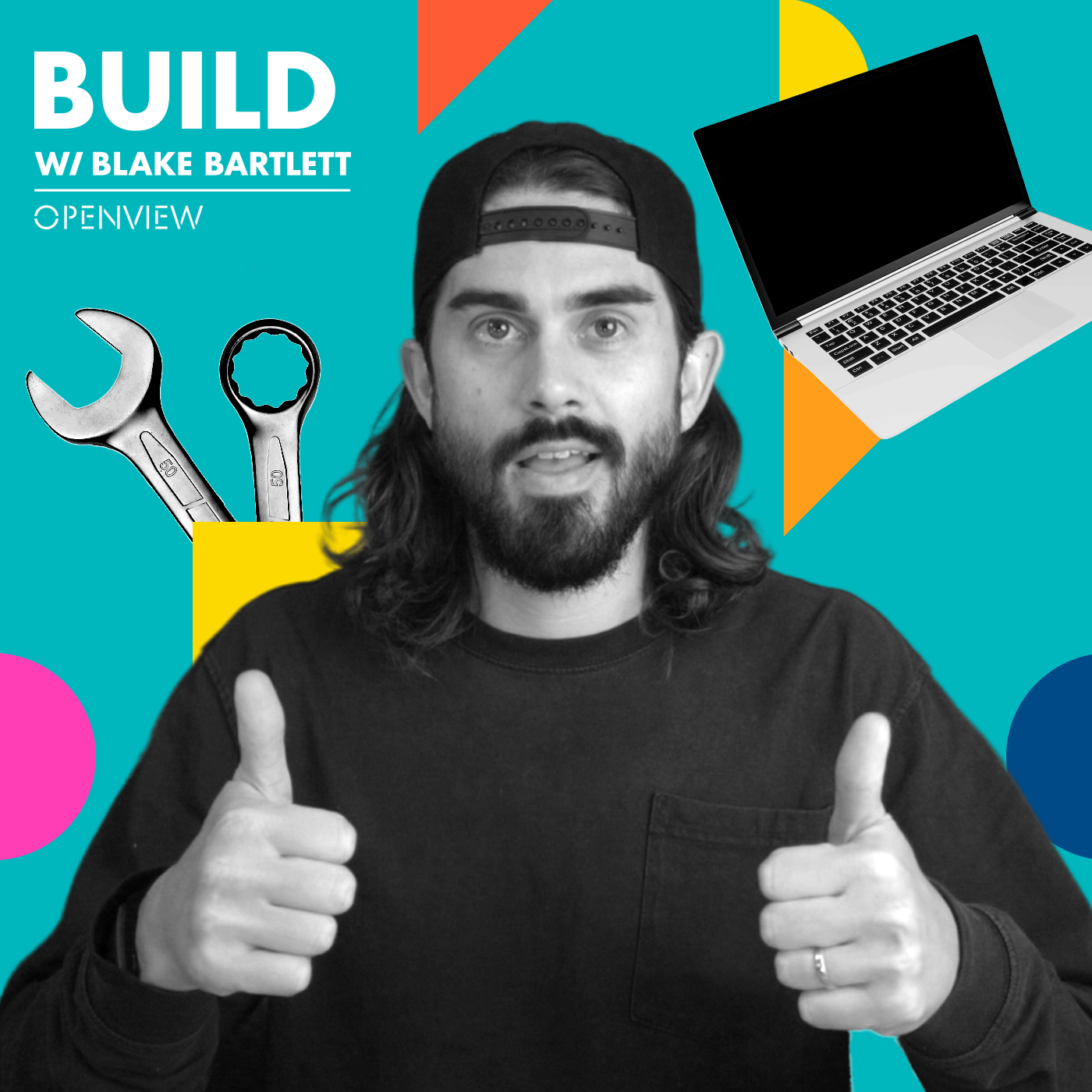
Blake Bartlett
Today's Guests
